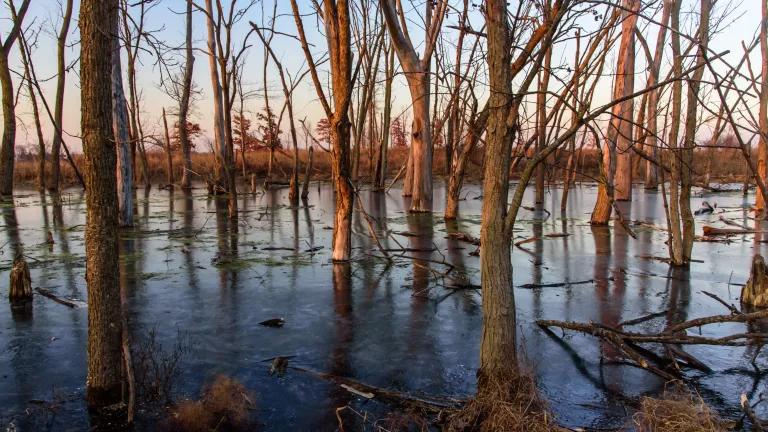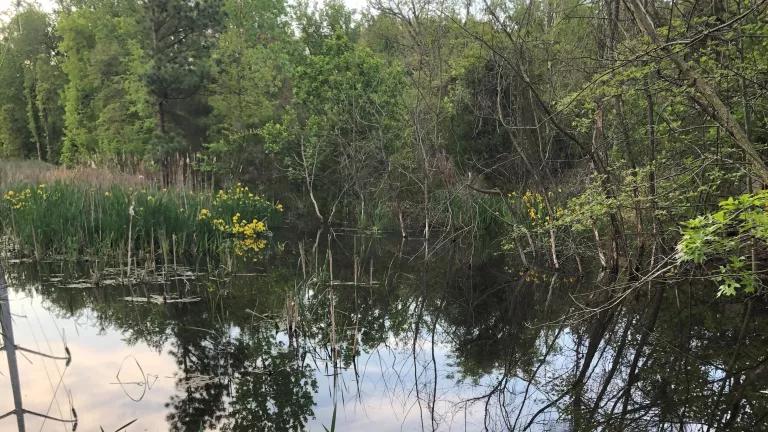Des Moines versus Goliath gets real: Water Works follows through on its lawsuit against Iowa drainage districts
In January, the Des Moines Water Works decided it had had enough of paying for costly treatment equipment to deal with an algae pollution mess it didn't make, and served some of those responsible with a 60-day notice of intent to sue. The 60-day advance notice is required under the Clean Water Act when citizens file suit against polluters, to give the government a chance to enforce and the polluter a chance to clean up its act.
Since none of that happened, Des Moines was free to pull the trigger on the lawsuit as of March 10 - and did just that. Yesterday, the Des Moines Water Works Board of Trustees voted unanimously to file the lawsuit on Friday in U.S. District Court for the Northern District of Iowa.
As discussed in earlier posts, Des Moines' lawsuit should come as a surprise to no one who's paying attention. Algae pollution fueled by agriculture and other sources, which has been slowly choking our nation's waters for decades, has increasingly been hitting innocents like Des Moines in the pocketbook. The Water Works, which has spent millions so far on cleansing the water supply of toxic nitrates associated with the pollution causing the algae problem, is stepping up in the face of massive inaction by EPA and state regulators to say, enough is enough. Its lawsuit follows our litigation filed in 2011 on behalf of Mississippi River Collaborative organizations seeking to compel EPA to address the problem. It also follows last summer's drinking water crisis in Toledo, in which the city lost its water supply for three days when Lake Erie algae collided with drinking water intakes.
Iowa is, sadly, a case in point illustrating how woefully inadequate state efforts have been to address the problem. Iowa agricultural industry spokespeople criticized the lawsuit on the ground that Iowa is currently implementing some voluntary strategies pursuant to an EPA directive, but that is precisely why the lawsuit is necessary: the all-voluntary approach has been tried and is not working. As the Iowa Environmental Council has pointed out, the state's program to address the nitrogen and phosphorus pollution causing the problem contains none of the elements necessary to even hope to make a dent in the problem - such as local goals, timelines with benchmarks, consistent water quality testing requirements to gauge progress, and sustainable funding for implementation. The Chair of the Water Works Board of Trustees noted that even a consistent monitoring requirement "would have been a great starting point" that might have made the lawsuit unnecessary, but the state's program lacks even that.
And so, as regulators continue to bury their heads in the algae-covered sand, Des Moines was faced with the option of either continuing to shell out money to pay for the problem or taking action to stop the bleeding. Its choice was both bold and sensible. We will be watching to see whether the many others suffering the severe economic consequences of algae pollution will likewise seek to hold the culprits accountable.




